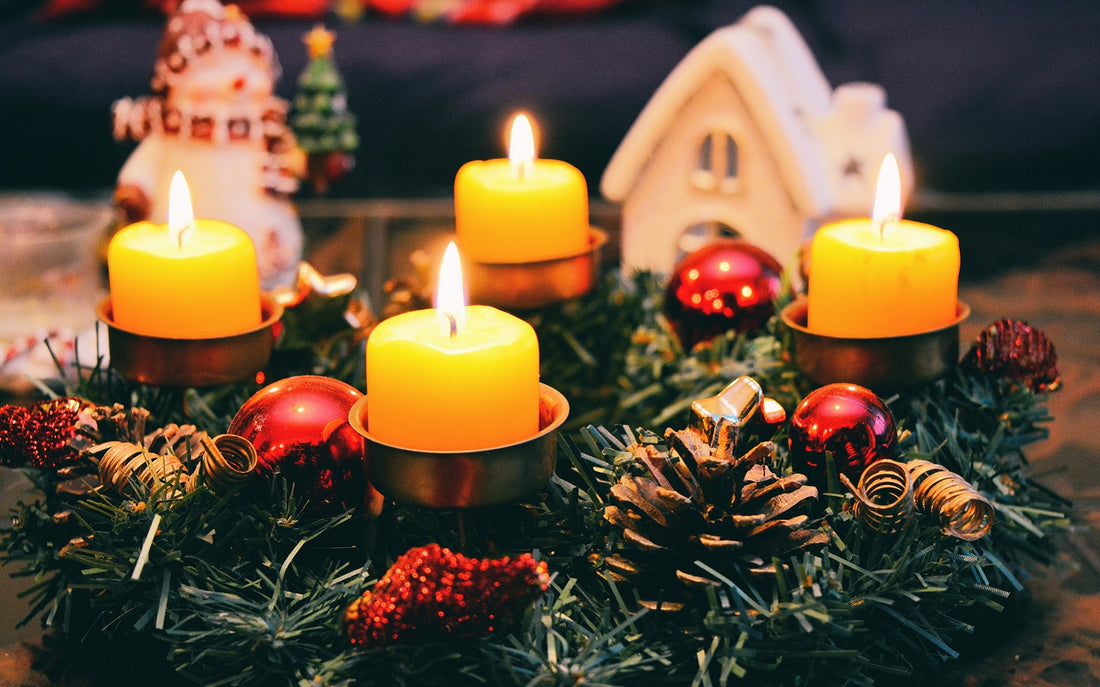
5 WAYS TO CELEBRATE A GERMAN-STYLE CHRISTMAS
Share
Vancouver, B.C., November 29, 2017 In Japan, it’s KFC on Christmas Eve; in Norway, it’s hiding your mops and brooms to prevent evil spirits; and in Sweden, it’s getting together with the whole family to watch the 'Donald Duck Christmas Special.' All around the world, people are celebrating Christmas with their own traditions.
In Japan, it’s KFC on Christmas Eve; in Norway, it’s hiding your mops and brooms to prevent evil spirits; and in Sweden, it’s getting together with the whole family to watch the 'Donald Duck Christmas Special.' All around the world, people are celebrating Christmas with their own traditions.
So, let’s have a closer look at the founders of Christmas markets – Germany. Here are 5 traditions that you should adapt for your own festivities.
Advent
You have probably heard about Advent calendars? No? Then this is for sure a tradition that you will love, because who doesn't love opening up a little door every day in December? The Season of Advent includes all four Sundays before Christmas and focuses on the expectation and celebration of Christ’s birth. In that time, there are different calendars used in German homes. You can build your own or buy them in any store, where they are filled with toys, chocolates or toiletries.

Christmas Market
No Christmas season is complete without at least one visit at a Christmas market. The streets of every historic city center of a major German city is full of Christmas market stalls. You can find seasonal handcrafts like our star, mulled wine, marzipan and nougat, as well as other snack bars with yummy things to try. If you have a close look, you will even find our Herrnhut star decorating the little huts situated on the market. If you are planning a trip to Germany for Christmas, visiting one of these Christmas markets is a must. If not, we are looking forward to seeing you at our Herrnhuter Sterne booth near you.
Räuchermännchen
The Räucherman is the invention of toy makers in the Ore Mountains and used to burn down cone incense, known as incense cones. Incense cones, known as "Räucherkerzen", the fine-smelling cones from the Ore Mountains, are an essential part of Christmas time. It is a common element of traditional Christmas decor to place your incense burner next to the many other traditional handcrafts and folk arts from the Ore Mountains. In Neudorf, HUSS has been producing exceptionally fine cones made of entirely natural materials based on an old family recipe since 1930. As well as incense cones, HUSS produces a variety of incense burners, ovens and more. Their quality and loving attention to detail are obvious for all to see. The incense cone burner in different shapes and sizes burns your incense cones safely.
In Neudorf, HUSS has been producing exceptionally fine cones made of entirely natural materials based on an old family recipe since 1930. As well as incense cones, HUSS produces a variety of incense burners, ovens and more. Their quality and loving attention to detail are obvious for all to see. The incense cone burner in different shapes and sizes burns your incense cones safely.
Incense smokers have graced German homes during the Christmas season and throughout the year since the 19th century.
Nikolaus
The Feast of St. Nicholas on the 6th December is an important part of the pre-Christmas time. He is not only a gift-bringer but also a good influence, because you have to clean your shoes before he comes and put them outside the door. If you haven't cleaned your shoes properly and been good, then you will not have any presents in your shoe.
Christmas Eve  The gift exchange in Germany takes place on December 24th. The night before is usually the time when the Christmas tree is decorated. Many families will go to church on Christmas Eve and have the Christmas presents under the tree ready to be unpacked. Martin Luther created the figure Christ Child around 1535 as the bringer of the gifts. But with the Europeans immigrants introducing Nicolaus, he became Father Christmas. Therefore, a lot of children no longer know Christ Child or that Father Christmas and Nikolaus are one and the same person.
The gift exchange in Germany takes place on December 24th. The night before is usually the time when the Christmas tree is decorated. Many families will go to church on Christmas Eve and have the Christmas presents under the tree ready to be unpacked. Martin Luther created the figure Christ Child around 1535 as the bringer of the gifts. But with the Europeans immigrants introducing Nicolaus, he became Father Christmas. Therefore, a lot of children no longer know Christ Child or that Father Christmas and Nikolaus are one and the same person.
December 25th and December 26th are also holidays in Germany. On those two days, most people visit relatives and friends or invite them over. At least one of the two days is celebrated with a big meal, with goose or carp as a traditional main course.
We hope to have brought you near some of our German traditions — some may be weird and some may be wonderful. In the end, it is your family traditions that will make your Christmas unique.
Spreading the joy of the holiday!
www.hussincense.com
